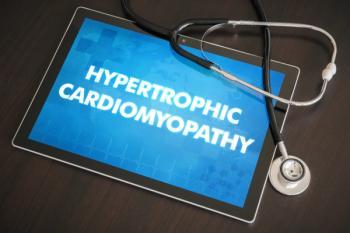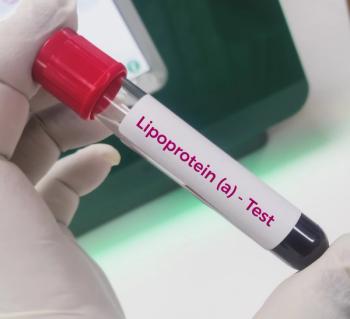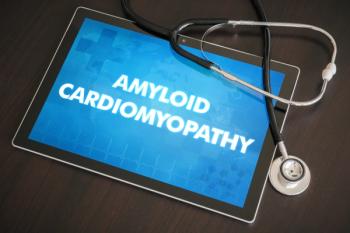
CLEAR Outocmes Trial Overview: Non-Statin Therapies for Patients with Atherosclerotic Cardiovascular Disease (ASCVD)
Leslie Cho, MD, FACC, FESC, FSCAI, and Seth S. Martin, MD, MHS, FACC, FAHA, FASPC, open a discussion regarding therapies for statin-intolerant patients with ASCVD and provide an overview of the CLEAR Outcomes clinical trial.
Episodes in this series
Leslie Cho, M.D., FACC, FESC, FSCAI: Welcome, everyone. Thank you for joining us for this Managed Healthcare Executive® Between the Lines program. We’re going to talk about bempedoic acid and cardiovascular outcomes in statin-intolerant patients. My name is Leslie Chou. I’m a cardiologist at Cleveland Clinic [in Cleveland, Ohio], the section head for preventive cardiology and cardiac rehabilitation, and a professor of medicine. With me today is Dr. Seth Martin.
Seth S. Martin, M.D., MHS, FACC, FAHA, FASPC: It’s great to be with you, Leslie. I’m a professor of medicine and cardiologist at Johns Hopkins Hospital [in Baltimore, Maryland]. I direct our Ciccarone Center lipid program, and I lead our digital health lab efforts at Hopkins. It’s great to be here. I’m looking forward to the discussion on bempedoic acid.
Leslie Cho, M.D., FACC, FESC, FSCAI: I’ll start by asking you some basic questions. Talk about why it’s important to develop new therapies beyond statins for patients with atherosclerotic cardiovascular disease [ASCVD]?
Seth S. Martin, M.D., M.H.S., FACC, FAHA, FASPC: Absolutely, Leslie. I’d welcome your perspective on this as well. It’s clear that cardiovascular disease is still a huge burden in the United States and globally. Although we’ve had a number of new therapies beyond statins, it has been an impressive advance in the therapeutic armamentarium we have for atherosclerotic cardiovascular disease prevention. But clearly we need more therapies. Part of the challenge is some of our patients can’t tolerate a full dose of a statin or a statin at all. When those patients have limitations in therapy, it’s a therapeutic challenge to get them down to LDL [low-density lipoprotein] levels that are where we need to be from a prevention standpoint. We’ve learned a lot around the cumulative exposure to LDL, or APOB-containing lipoproteins, which have been a critical driver of atherosclerosis and cardiovascular events. We often need combination therapy beyond statin to lower the cumulative exposure to LDL. It’s been very welcome in the world of lipid treatment and prevention to have new therapies that give us more tools to work with our patients to get them to optimal LDL levels.
Leslie Cho, M.D., FACC, FESC, FSCAI: I agree. There are many new and exciting drugs, like PCSK9s and bempedoic acid, which we’re going to talk about. But you’re right. Some patients can’t take statins, and it’s critically important to find therapies that lower LDL.
Seth S. Martin, M.D., MHS, FACC, FAHA, FASPC: As we start our discussion, this burden of cardiovascular disease and the need for additional options leads to ask why the CLEAR Outcomes trial was planned, what the objectives were and what the overarching design of the trial was. Leslie, you were 1 of the leaders on the trial, so you’re in a good position to educate us on the framing of the trial. Would you care to elaborate on that?
Leslie Cho, M.D., FACC, FESC, FSCAI: Yes, thank you. I was privileged enough to be on the steering committee. The FDA approved bempedoic acid in 2020 for the treatment of hypercholesterolemia. We’ll talk about how it works and how the mechanism of action lowers LDL [low-density lipoprotein] by 17% to 30%. Until recently, there were no outcomes data. There was no understanding of whether taking bempedoic acid lowers heart attack, stroke, all-causes death, cardiovascular death and the need for repeat coronary revascularization. CLEAR Outcomes was designed to answer that question.
Seth S. Martin, M.D., M.H.S., FACC, FAHA, FASPC: I wasn’t on the trial team, but looking at the design, it strikes me as a very well-designed trial and fits with many of the other trials in the preventive cardiology space that have a focus on multicomponent MACE [major adverse cardiovascular events] as the outcome. That’s what we need to know, together with our patients, to make treatment decisions.
Leslie Cho, MD, FACC, FESC, FSCAI: CLEAR Outcomes was geared toward statin-intolerant patients. There’s been a lot of discussion around statin intolerance. Before we dive into CLEAR Outcomes, Seth, tell us about the prevalence of statin intolerance and what we know about it in 2023.
Seth S. Martin, M.D., M.H.S., FACC, FAHA, FASPC: When we look at the literature, the prevalence of statin intolerance is 10% to 20%. It varies by study based on population, as well as different definitions that may be used to define statin intolerance. In general, there’s a pretty good consensus that we’re talking about a patient who’s tried multiple statins and at least 1 at a low dose. In the CLEAR Outcomes study, statin intolerance had a very nice patient-centered perspective. It was done in a rigorous way in the sense that patients had tried statins and were well informed about the benefits of statins. When making the decision to go into the trial, the patient signed consent. [In doing this] they were acknowledging that statins have a lot of evidence around the benefits and are very safe, but [the patient] can’t tolerate statin therapy. That consent, that shared decision-making process, happened for patients signing up for the trial. It was a rigorous and pragmatic way to assess and define statin intolerance for the patients coming into the trial.
Leslie Cho, M.D., FACC, FESC, FSCAI: I agree. We all know that patients who can’t tolerate statins or who come off statins have high event rates. Even though most patients can tolerate statins, some can’t. For those patients, it’s important to provide an alternative so that their event rates can be lowered.
Transcript edited for clarity.
Newsletter
Get the latest industry news, event updates, and more from Managed healthcare Executive.

























